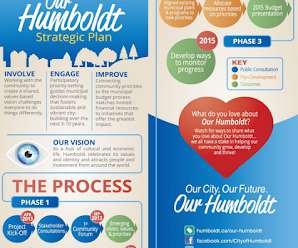City of Humboldt Open House Brings Priority Based Budget to Public
PBB Center for Priority Based Budgeting
APRIL 25, 2016
"Priority based budgeting will better allow the city to support its long-term strategic goals based on community values." This article originally written by Becky Zimmer from the Humboldt Journal. The public had their chance to ask questions on April 5th at the public budget meeting at the Uniplex. City Manager, Roy Hardy, made the presentation to a small crowd on what the 2016 budget is going to look like in terms of tax increases and social programs.













Let's personalize your content